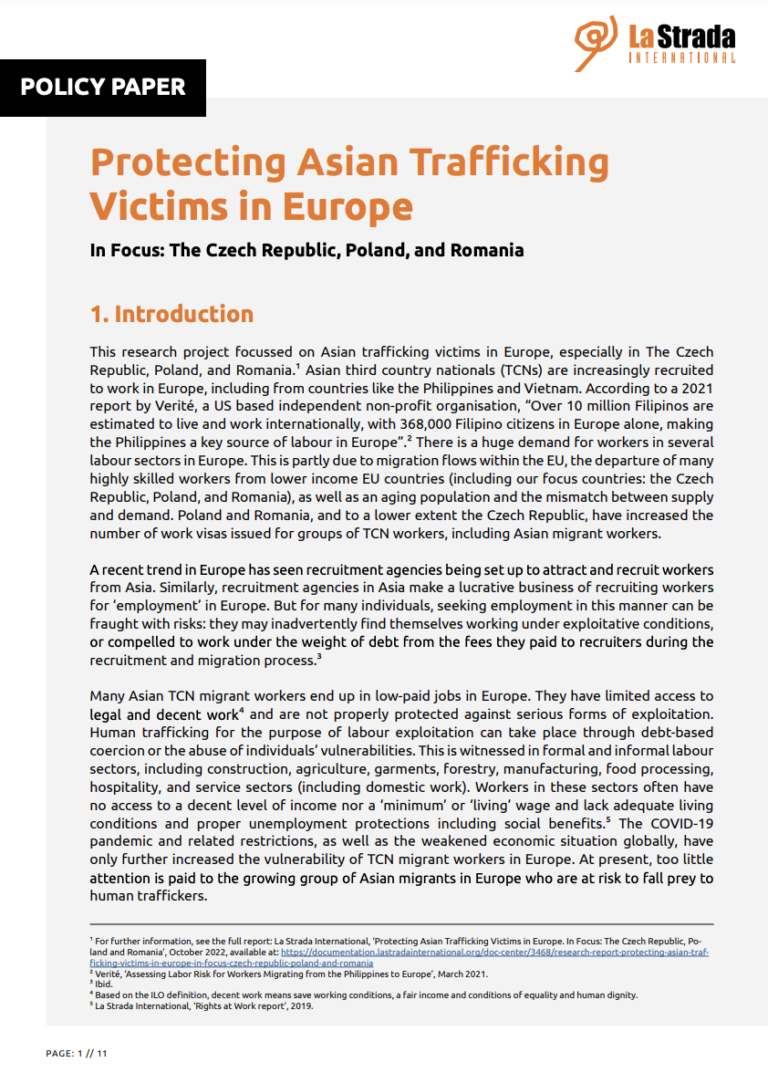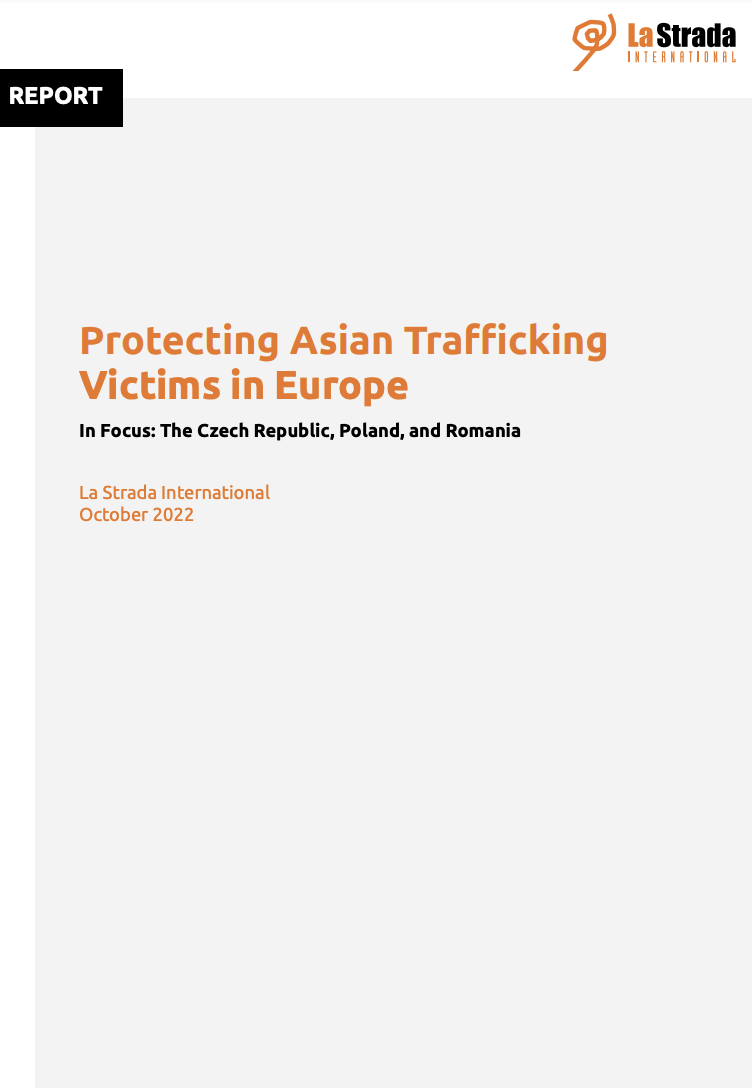This research project focussed on Asian trafficking victims in Europe, especially in The Czech Republic, Poland, and Romania. Increasingly, Asian migrants are recruited to work in Europe. Among them are many people from the Philippines and Vietnam. There are more and more signs that this recruitment often leads to employment in non-decent working conditions, in some cases even forced labour or human trafficking. However, few Asian third country nationals (TCNs) are identified as victims of human trafficking and these crimes are only very scarcely reflected in case law, meaning that the perpetrators of these exploitative practices go unpunished.
There is a huge demand for workers in several labour sectors in Europe. This is in part due to migration flows within the European Union (EU) and the departure of many highly skilled workers from lower income EU countries, including our focus countries: the Czech Republic, Poland, and Romania. Further causes include the ageing of the population and the mismatch between supply and demand. A recent trend has seen recruitment agencies being set up to recruit workers from abroad. Also in Asia, recruitment agencies make a lucrative business of recruiting workers for ‘employment’ abroad. This process can be fraught with risks, including exploitative conditions and the weight of debt from the fees they paid to recruiters during the recruitment and migration process.


